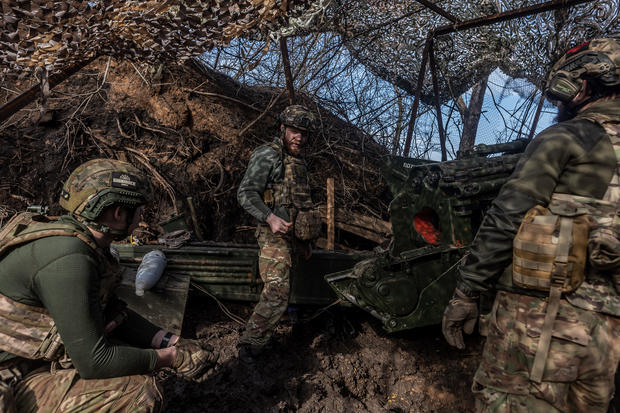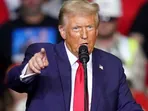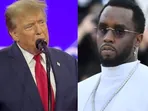Why Ukraine needs U.S. funding, and why NATO says that funding is an investment in U.S. security
Ahead of a meeting of NATO defense secretaries in Brussels on Thursday, NATO Secretary General Jans Stoltenberg urged members of the U.S. House of Representatives to pass a multi-billion dollar aid package for Ukraine as "an investment in our own security."
Stoltenberg said if Russia wins the war in Ukraine, the Russian state will be emboldened, as will China.
"If President Putin wins in Ukraine, it will send a message to him but also to other authoritarian leaders that they get what they want when they use military force. It will make the world more dangerous (and) us more vulnerable," Stoltenberg told the Reuters news agency. "Today it is Ukraine, tomorrow it can be in Taiwan. So, Beijing — China — is watching closely what's going on in Ukraine."
Why does Ukraine need more military aid?
Two years into the war sparked by Russia's full-scale invasion, Ukraine is running out ammunition.
"They've gone from firing 7,000 rounds a day to 2,000 rounds a day, which is a pretty significant reduction, at the same time that the Russians have been able to increase their procurement of their own munitions, also buying some from North Korea," Edward Arnold, a European security research fellow at the British defense think-tank RUSI, told CBS News.

Arnold said Ukraine had also lost so many soldiers in the war that it was running out of sufficiently trained personnel, and it doesn't have enough weapons to keep carrying out many long-range strikes on strategic Russian targets, such as command-and-control centers and ammunition storage facilities.
"As a result, Ukraine this year has just sort of formally announced that they're moving back to defensive operations, probably for the whole year. Because they lack the offensive potential, because they don't have enough ammunition," Arnold said.
What is included in the U.S. aid package for Ukraine?
A funding bill passed by the U.S. Senate on Monday, but not yet picked up by the House of Representatives, includes around $60 billion in additional military aid for Ukraine.
But if and when it is approved, "they don't just hand over all of the money to Ukraine," Arnold explained. "They mainly spend it with U.S. defense contractors to buy equipment from them to send to Ukraine. So the vast majority of the money that the U.S. has given to Ukraine has actually gone into the U.S. economy."
The U.S. has provided a wide range of aid to Ukraine, including American-made weapons systems and military vehicles. Much of that hardware requires specific parts for maintenance and specific ammunition. So the new aid package "matters not just for the amount, which is significant, but it's also what is provided by the U.S." to keep equipment already provided running and weapons already provided firing, Arnold said.
"The U.S. has provided a lot of the vehicles that the Ukrainians now use, so they need to be maintained — and with enough ammunition so they can be used effectively. Particularly HIMARS, a long range rocket artillery system. They're incredibly effective against the Russians, and the Ukrainians aren't running out of targets, they're just running out of missiles."
What do the current shortfalls mean for Russia?
Arnold said Ukraine has been "wholly reliant on Western aid" since about two weeks into the full-scale Russian invasion, which started on Feb. 24, 2022.
"That's the only thing that's sustaining them," he said, adding that the amount of aid Ukraine is currently receiving, primarily from other NATO members in Europe, is not enough to win the war against Russia, but simply to stay in the fight.
"But if that starts to drop further, because, you know, Western policymakers don't think that this is a viable prospect anymore, then that's the easiest route to Russian victory," Arnold said.
Arnold said recent history shows Russia is "an aggressive state, and if they win in Ukraine, they're going to most likely start to look at other states in Europe, particularly the Baltic states."
"From an American perspective, through NATO as an alliance, that will draw America into a wider conflict," he said, referring to the mutual defense clause in the NATO alliance's founding treaty.
He said Russia's strategy appeared to be to wait and see if Western support for Ukraine dwindles, and argued that supporting Ukraine now would be a good defense investment for the U.S. in the longer term.
"This is a very, very good chance to destroy the Russian military in the field and destroy its conventional capability for potentially decades," Arnold told CBS News "And when there's other challenges that the Americans are concerned about, principally China — annexation of Taiwan — well, if you can reduce the Russians by spending a very, very small percentage of your defense expenditure, then that is very, very much money well spent."
- In:
- War
- United States Senate
- Joe Biden
- Ukraine
- Donald Trump
- China
- United States House of Representatives
- Jens Stoltenberg
- NATO

Haley Ott is cbsnews.com's foreign reporter, based in the CBS News London bureau. Haley joined the cbsnews.com team in 2018, prior to which she worked for outlets including Al Jazeera, Monocle, and Vice News.
Twitter InstagramDisclaimer: The copyright of this article belongs to the original author. Reposting this article is solely for the purpose of information dissemination and does not constitute any investment advice. If there is any infringement, please contact us immediately. We will make corrections or deletions as necessary. Thank you.
Title:Why Ukraine needs U.S. funding, and why NATO says that funding is an investment in U.S. security
Url:https://www.investsfocus.com







